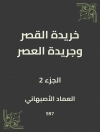In ‘Mazeppa, ‘ Frederick Whishaw weaves an intricate tale that blends historical fiction with vivid poetic imagery, capturing both the tumult of 18th-century Ukraine and the turbulent emotions of its central figure, Ivan Mazeppa. The narrative unfolds through Whishaw’s evocative prose, showcasing his ability to interlace rich character development with the harsh realities of conflict and cultural upheaval. This novel, set against a backdrop of political intrigue and personal betrayal, encapsulates the Romantic period’s fascination with heroic yet tragic figures, echoing the themes present in the works of his contemporaries such as Byron and Pushkin. Frederick Whishaw, an accomplished Victorian author, drew upon his extensive knowledge of history and love for the Ukrainian landscape during his travels, which influenced the creation of this powerful narrative. His deep familiarity with Romantic literature and personal experiences in Europe provided him with a unique lens through which to explore themes of loyalty, identity, and destiny. Whishaw’s background as a traveler and a chronicler of human conflict imbues ‘Mazeppa’ with authenticity and emotional depth. Readers seeking a compelling blend of history and romance will find ‘Mazeppa’ a fascinating exploration of human courage and passion. Whishaw’s engaging storytelling and richly drawn characters invite you to delve into a world where personal and political struggles collide, making this novel a must-read for those drawn to the complexities of the human spirit.
Over de auteur
Frederick Whishaw (1854–1934) was a versatile English author and translator, known for his contributions to historical fiction and a particular interest in Russian history and culture. His literary work often reflects a deep fascination with the past and its compelling figures, which he brought to life through meticulous research and imaginative storytelling. ‘Mazeppa, ‘ one of his notable works, delves into the rich tapestry of Eastern European history, embodying the life and adventures of the Ukrainian Cossack Hetman, Ivan Mazeppa, who became a legendary figure in European folklore. Whishaw’s portrayal is both vivid and evocative, shining a light on the complex interplay of personal ambition and political intrigue in the 17th and 18th centuries. His narrative style, characterized by a blend of historical detail and engaging prose, captures the spirit of the times and offers readers a window into a bygone era. Whishaw’s body of work also includes translations of Russian literature, allowing English-speaking readers access to stories from a culture he deeply admired. While he may not be as widely recognized today, Frederick Whishaw’s contributions to historical fiction provide a legacy that continues to offer insights into the historical events and personalities that shaped Europe.












